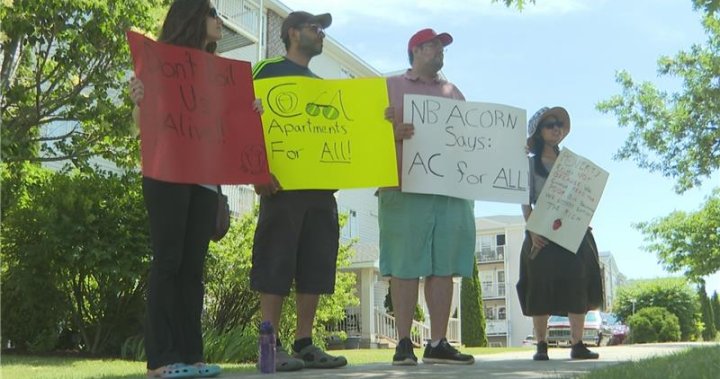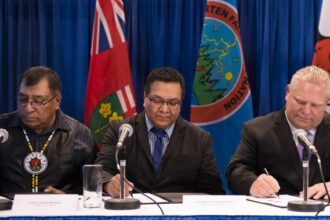As summer temperatures soar to unprecedented heights across Atlantic Canada, advocacy groups are ramping up pressure on the New Brunswick government to establish critical funding for cooling systems in low-income households—a measure they argue has become a matter of life and death rather than mere comfort.
“We’re seeing increasing evidence that extreme heat is a silent killer, particularly for our most vulnerable populations,” says Marilyn LeBlanc, executive director of Housing Alternatives New Brunswick. “When temperatures climb above 30 degrees for days on end, those without access to cooling systems face genuine health risks that many of us take for granted we can avoid.”
The call for action comes after three consecutive summers of record-breaking heat waves in the province, with climate scientists projecting this trend will not only continue but intensify. The advocacy coalition, which includes poverty reduction groups, senior care organizations, and public health advocates, points to programs already established in neighboring provinces as viable models.
Nova Scotia implemented a similar initiative last year that provides qualifying households with up to $750 toward the purchase and installation of air conditioning units. The program specifically targets seniors, people with disabilities, and families with young children—populations most vulnerable to heat-related illnesses.
Dr. James Harrington, a climate health researcher at the University of New Brunswick, emphasizes the shifting reality of our northern climate. “There’s been a fundamental misunderstanding in Canadian policy that our primary concern is keeping people warm, not cool. Climate change has altered that equation dramatically, and our infrastructure and support systems haven’t caught up to this new reality.”
The CO24 News team surveyed several apartment complexes in Fredericton, Saint John, and Moncton, finding that less than 40% of rental units in buildings constructed before 2000 have central air conditioning, while window units remain an expensive luxury for many tenants.
Housing advocates highlight that many lease agreements prohibit window units without special permission or additional fees, creating another barrier for renters. Compounding the issue, electricity costs in New Brunswick have risen by approximately 8% in the past two years, making the operation of cooling systems increasingly unaffordable for those already struggling financially.
The provincial Department of Social Development has acknowledged receipt of the proposal but has yet to commit to any new program. A spokesperson indicated that existing home energy efficiency programs provide some relief, though critics note these programs focus primarily on heating rather than cooling needs.
“This isn’t about comfort—it’s about survival,” says retired nurse Patricia Doherty, who volunteers with seniors in Moncton’s north end. “I’ve personally witnessed elderly people suffering in apartments that reach over 35 degrees inside. When you’re on a fixed income of $1,500 a month and your rent takes most of that, how are you supposed to afford an air conditioner?”
The economic implications extend beyond individual households, according to CO24 Business analysis. Heat-related hospital admissions during extreme temperature events have risen by 23% over the past five years, placing additional strain on New Brunswick’s already overtaxed healthcare system.
For 68-year-old Fredericton resident Gerald MacIntosh, the issue is painfully personal. “Last summer, I had to take my wife to the emergency room twice for heat exhaustion. We saved for months to buy a small unit for our bedroom, but we can only run it at night because of the power bill. During the day, we just suffer through it.”
The coalition’s proposal suggests a two-tiered approach: direct subsidies for purchasing cooling equipment and supplementary electricity bill assistance during peak summer months. They estimate the program would require approximately $4.2 million annually to serve the estimated 12,000 households most in need.
As climate change continues to reshape our understanding of essential services, the question remains: will New Brunswick recognize cooling as a basic need for health and safety, or will it continue to be treated as a luxury that remains out of reach for those who need it most?










